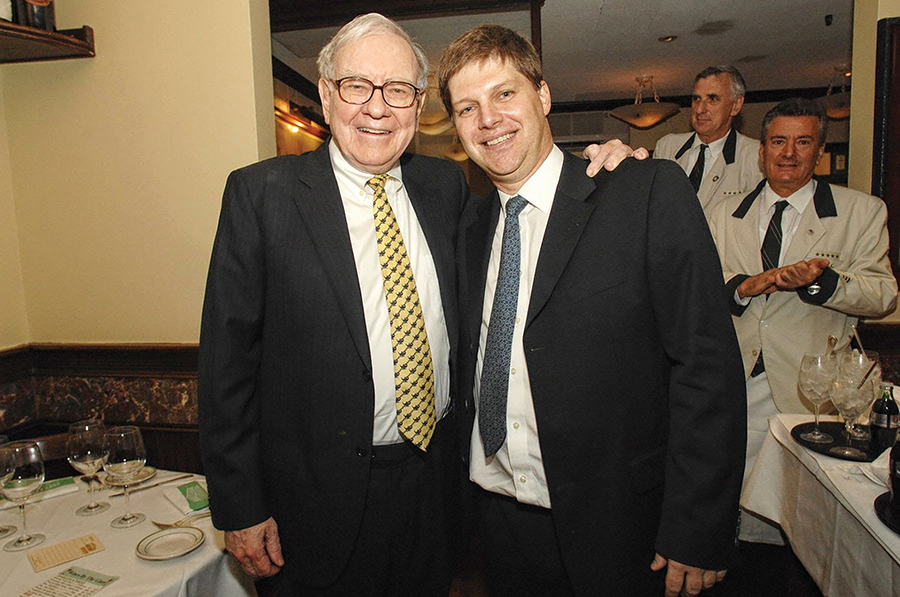Guy Spier started his finance career with the right pedigree, from Oxford University to Harvard Business School. But when he took a job at an ethically challenged Wall Street firm (a number of its top leaders later pleaded guilty to fraud charges), he was ashamed. Spier didn’t participate in the malfeasance, but he felt embarrassed and tainted by the association: How could he have chosen so poorly? “It was just a horrible place.
Literally, I left it off my resume; I tried not to talk about it,” he recalls.
But in his book The Education of a Value Investor: My Transformative Quest for Wealth, Wisdom, and Enlightenment, Spier — now a prominent investment manager — shares the hard-fought lessons he learned. Too often, memoirs are whitewashed to put forward the impression that success was inevitable, but Spier wanted to tell the full story.
“I really wanted readers to know the failures,” he says. “When I wrote that first chapter, I was like, ‘Am I really going to write this?’ It’s slightly scary… telling people what it’s really like and trying to help people see that they can have terrible mistakes, they can have terrible misdirections, they can have utter greed and envy, and it’s okay, because the rest of us do as well. That doesn’t make them bad. It’s okay to embrace those emotions and to sublimate them into something better.”
Spier reinvented himself nearly two and a half decades ago when he formed the Aquamarine Fund, which he still manages. In many ways, writing the book capped his reinvention. “In that first chapter, I got the courage to say, ‘Folks, I’m a different person now, and I’m going to tell my story. I’ve got to tell you about who I was.’ You know that you’ve fully transformed yourself when you can confidently tell the narrative of how you were without it being painful.” Here are the lessons Spier learned in reinventing himself and building a business to be proud of.
1. Learn from the best. Spier recalls his darkest days, sitting in his office at the disgraced company and feeling disillusioned with Wall Street’s underbelly. “Take any person, put them in the wrong environment, and they can get off to some pretty bad things,” he says. “Warren Buffett has said that he would not like to get into debt because he doesn’t want to discover what behavior he’s capable of. Just having that biography of Warren Buffett to read pulled me back from that culture. It’s an environment that’s just saying, ‘Look, we’ll have you around for a year or two and if you’re willing to do some of our dirty work, we’ll keep you around and maybe you’ll make some money.’
The dirty work is never asked for, but it’s all about misrepresenting crappy investments to an unsuspecting person.” In reading about Buffett’s more honorable approach, Spier found inspiration. “In some ways, he was my savior… I was modeling him based on the books and biographies I’d read.”
2. Associate with the right people. Even better than reading about your heroes, however, is meeting them — something Spier had the opportunity to do in 2007 when he went in with his friend Mohnish Pabrai to buy lunch with Warren Buffett at a charity auction, for the princely sum of $650,100. Was it worth it? Spier says absolutely.
“What I never understood before that was the impact of just meeting somebody once. When you actually sit in somebody’s presence, you have so much more of an ability to model how they would act,” he says. “You get this resonance and sense of what it’s like to be in the person’s presence, what emotionally makes them tick.” In general, says Spier, it’s critical to “spend time with people who are better than you from whom you can learn. Powerful things can happen if you do that.”
3. Be honest with yourself and others. Part of Spier’s goal in telling his story so honestly is to live up to Buffett’s example. Buffett doesn’t put profit before all else; what’s far more important is being an honest and decent businessman.
“I think that he showed me a way,” says Spier. “I was transformed. I learned to see myself and my role as a capitalist,as somebody who’s trying to harness for myself and for society the power of greed and the power of the will to acquire something that makes the world a better place. That’s the version of capitalism we want.”
Through modeling himself on Warren Buffett — first through articles and books he’d read, and later by meeting Buffett in person — Spier developed the vision and direction to reinvent himself. By asking what Buffett would do in any given situation, Spier gave himself a north star to follow and built a career worthy of his hero.




































